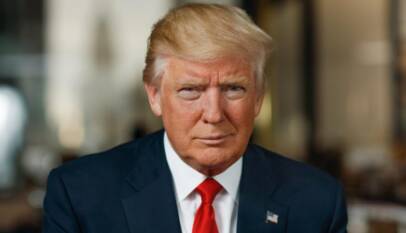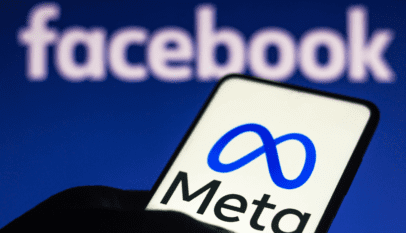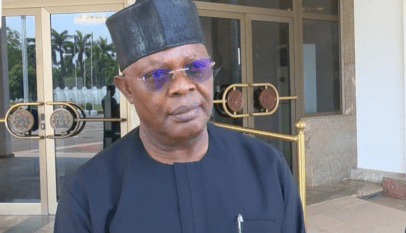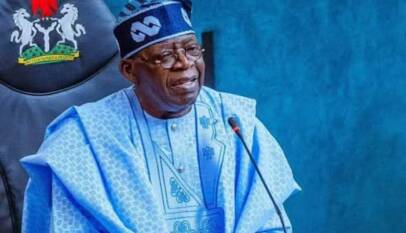
By Austin Manekator
The final chapter scroll of the sensational social media platform TikTok has been made in the United States – at about midnight as the ban on the platform takes effect. The world’s most downloaded app is caught in political wrangling, national security concerns, and cultural upheaval.
On January 19, 2025, TikTok faces a critical ultimatum: ByteDance, its Chinese parent company, must divest its U.S. operations or see the app removed from American app stores. What was once a space for dance challenges and viral memes now finds itself at the centre of one of our time’s most dramatic tech controversies.
The Ban: A Tale of Two Administrations
The seeds of this saga were planted in 2020 during the Trump administration, which flagged TikTok as a national security risk due to its ties to China. The concern was that ByteDance could share U.S. users’ data with the Chinese government. Though TikTok repeatedly denied these allegations and struggled to assure U.S. regulators with measures like housing user data domestically, scepticism lingered.
Under President Joe Biden, the pressure to address TikTok’s ownership intensified. In 2023, bipartisan support for legislation targeting apps with foreign ties grew stronger.
Finally, the U.S. Supreme Court upheld a law mandating ByteDance to either sell its U.S. operations or face a complete ban. While President Biden refrained from enforcing the ban, leaving it for the incoming administration, his decision sparked controversy, with critics accusing him of punting on a major issue.
TikTok’s Impact on U.S. Culture
TikTok’s meteoric rise in the U.S., as in other countries, transformed the social media landscape. It democratised fame, allowed everyday users to become influencers overnight, and reshaped industries from entertainment to education. The platform’s algorithm, touted for its uncanny ability to deliver personalized content, made it indispensable to creators and brands.
For many, TikTok is more than just an app—it’s a cultural phenomenon. It gave birth to viral dances, trends, and even political activism, particularly among Gen Z users. Its role in the Black Lives Matter protests of 2020, mental health advocacy, and global humanitarian efforts demonstrated its capacity to foster community and drive social change.
The National Security Debate
Despite its cultural significance, TikTok’s troubles in the U.S. were sparked by one issue: national security. Lawmakers and its antagonists argue that ByteDance’s Chinese ownership poses an unacceptable risk. They cite China’s 2017 National Intelligence Law, which requires companies to cooperate with government intelligence activities.
While TikTok has consistently denied handings’ over user data to Beijing, its assurances have done little to ease concerns. To calm down frayed nerves, the company implemented Project Texas, a $1.5 billion initiative to store U.S. user data domestically on servers managed by Oracle. Yet, this measure failed to quell bipartisan fears, with critics calling it insufficient.
The Supreme Court Ruling
The final nail in the coffin of Byte Dance wriggle was struck in late 2024 when the Supreme Court unanimously upheld legislation requiring it to divest its U.S. operations. This landmark decision gave TikTok until January 19, 2025, to comply or face removal from app stores. The ruling left TikTok in a precarious position, with its fate resting on its ability to secure a buyer.
As the deadline approached, negotiations with potential buyers—including tech giants like Microsoft and Oracle—reportedly stalled. ByteDance expressed concerns about divestiture impacting TikTok’s global operations and intellectual property. With no deal in sight, the company stands on the brink of losing its largest market outside China.
Trump’s Return and the Uncertain Future
In another twist, the man who started the campaign to ban TikTik is now primed to decide its faith in U.S. Enter President-elect Donald Trump, a figure whose history with TikTok is fraught with contradictions. In 2020, Trump sought to ban the app but failed to follow through. By 2025, Trump had become an active TikTok user, amassing 14.8 million followers. Now poised to return to the White House, he faces a critical decision: enforce the Supreme Court’s ruling or grant ByteDance an extension.
In recent statements, Trump has hinted at a potential 90-day reprieve to allow TikTok more time to secure a sale. However, he remains firm on addressing national security concerns, calling for stricter regulations on foreign-owned apps. Trump’s approach has divided opinion, with critics accusing him of flip-flopping and supporters praising his pragmatism.
Public and Corporate Reactions
The looming ban has sent shockwaves through TikTok’s vast user base. Many creators have taken to the platform to post emotional farewells, often using humour and irony to cope with the uncertainty. Hashtags like #TikTokBan and #SaveTikTok have trended, as users share memories and rally against the decision.
Brands have also joined the fray, using TikTok’s potential demise as an opportunity for creative marketing. Companies like Sony Pictures, Fandango, and Duolingo have posted farewell videos, blending humour with nostalgia to connect with their audiences one last time.
Meanwhile, competitors like Instagram Reels, YouTube Shorts, and Snapchat Spotlight are positioning themselves to fill the void. These platforms have already started courting TikTok creators, offering incentives to migrate their content and followers.
Implications for the Tech Industry
The TikTok ban represents more than a single app’s struggle; it signals a broader shift in the global tech landscape. The U.S. government’s aggressive stance on foreign-owned apps could set a precedent, leading to stricter scrutiny of international tech companies. For American businesses, the ban underscores the importance of data sovereignty and supply chain transparency. Companies may increasingly prioritize domestic ownership and localised infrastructure to avoid regulatory hurdles.
A Global Impact
The TikTok saga is also playing out on the international stage. Countries like India have already banned the app, citing similar national security concerns. Meanwhile, the European Union is grappling with its regulatory challenges, including calls for stricter data privacy laws.
China, for its part, has criticized the U.S. government’s actions as an overreach, accusing it of stifling competition under the guise of security. The ban has further strained U.S.-China relations, which are already fraught with tensions over trade and technology. There are also concerns that the US action could spark a tit-for-tat action by China, which is increasingly being targeted by the US.
What’s Next for TikTok?
On the significant January 19 deadline, TikTok’s future hangs in the balance. If ByteDance fails to divest its U.S. operations, the app will face removal from app stores, effectively cutting off new downloads and updates. While existing users could still access the platform, its functionality would likely deteriorate over time.
In the short term, TikTok’s loss could benefit its competitors. However, the long-term implications for social media innovation and global connectivity remain unclear.
U.S. users are frantically scrolling through their feeds, savouring every last dance challenge, meme, and viral moment. Whether this truly is the final scroll for TikTok in the U.S. remains to be seen. But one thing is certain: the app’s impact on culture, politics, and technology will not be forgotten.































